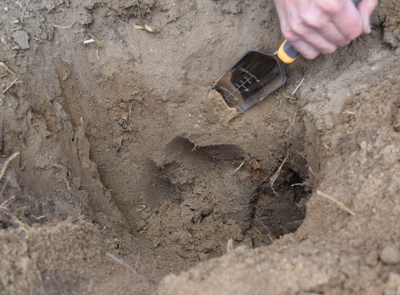5585 Guilford Road • Madison, WI 53711-5801 • 608-273-8080 • Fax 608-273-2021
www.agronomy.org
Twitter | Facebook
NEWS RELEASE
Contact: Hanna Jeske, Associate Director of Marketing and Brand Strategy, 608-268-3972, hjeske@sciencesocieties.org
How can I use natural materials to build soil fertility in my garden?
May 7, 2018 – Healthy, fertile soil feeds our garden’s growth. The May 7thSustainable, Secure Food blog explains how to build soil health in two words: organic matter!
 Organic matter feeds good organisms, such as soil bacteria and earthworms. Although organic matter is only five percent of the soil, its impact is huge.
Organic matter feeds good organisms, such as soil bacteria and earthworms. Although organic matter is only five percent of the soil, its impact is huge.
“Organic matter is a key ingredient that you must nurture,” says Amanda McWhirt. McWhirt is an Extension specialist and assistant professor, University of Arkansas. “When we add dead organic matter to the soil, we are helping it be alive!”
Building your soil’s organic matter can happen in several ways:
- Compost
- Composted manure
- Cover crops such as red clover or mustard
- Kelp meal, blood meal, or bone meal
In addition to adding organic matter, McWhirt recommends annual soil tests. “Soil testing is also important to monitor soil pH, a measurement of how acid or alkaline the soil is, which has a big effect on the availability of nutrients within the soil.” McWhirt says.
To read the complete blog, visit Sustainable, Secure Food at https://wp.me/p9gkW1-1b.
This blog is sponsored and written by members of the American Society of Agronomy and Crop Science Society of America. Our members are researchers and trained, certified, professionals in the areas of growing our world’s food supply while protecting our environment. We work at universities, government research facilities and private businesses across the United States and the world.